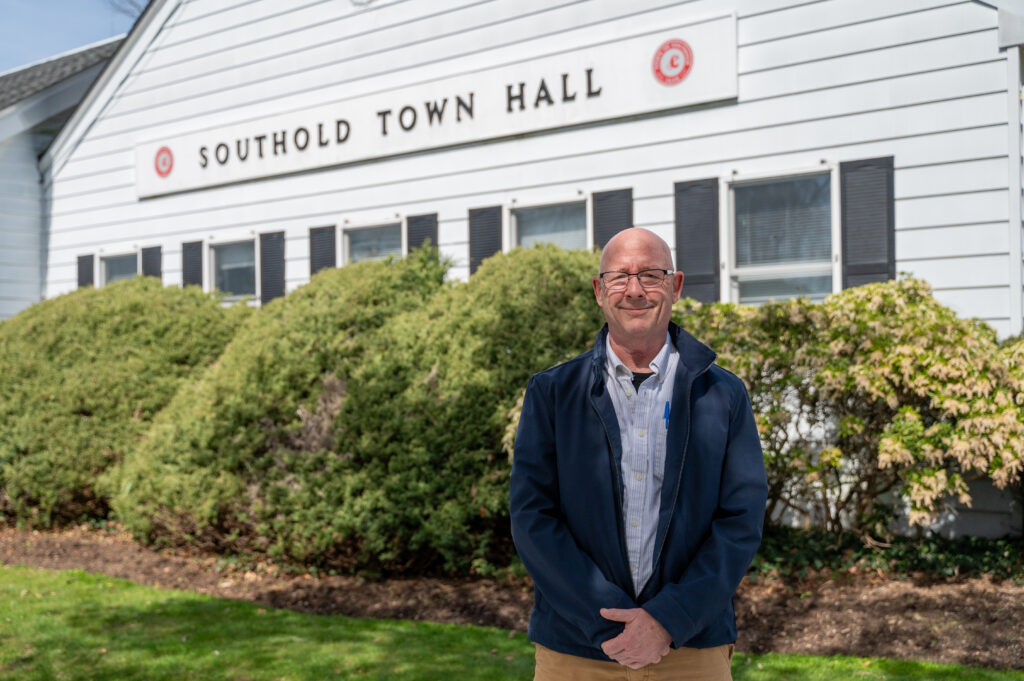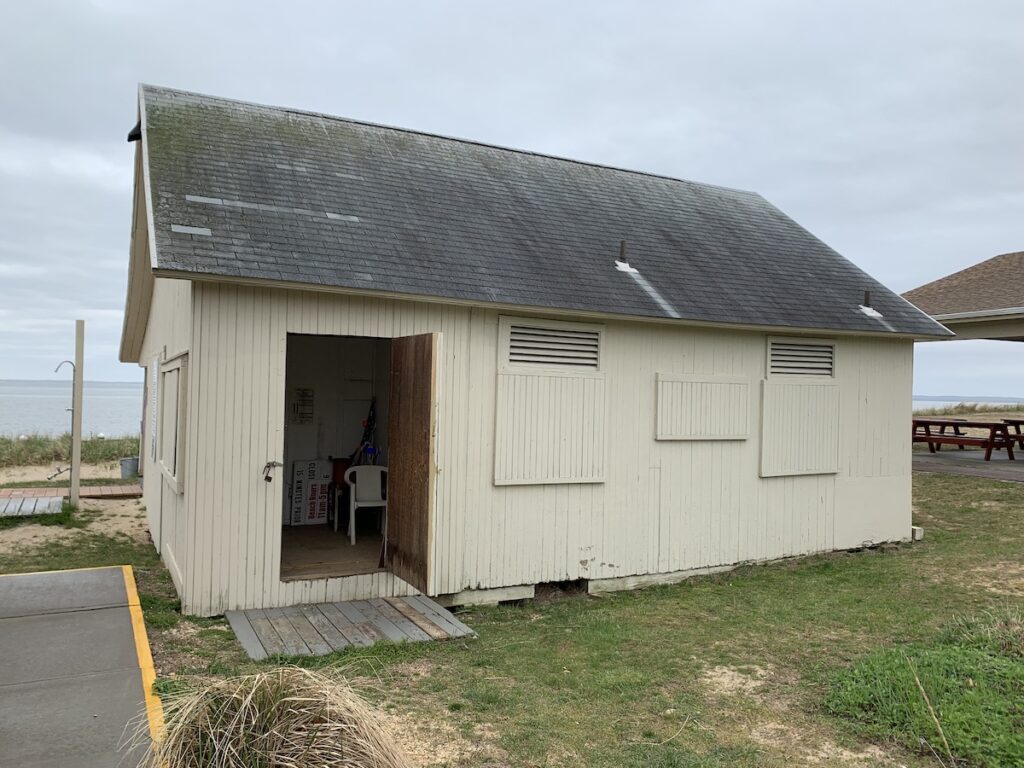1800s music manuscript found at historical society

Mark MacNish, executive director of the Cutchogue-New Suffolk Historical Council, wasn’t aware of the old 8.5-by-4.5-inch handbound book until last May, when a military reenactor noticed the manuscript on a table inside The Old House on the Cutchogue Village Green and brought it to his attention.
In a January post for the council’s website, Mr. MacNish shared that the book turned out to be an 1800s music manuscript belonging to a member of the Reeve family of Mattituck. The actor who discovered it, was participating in a Revolutionary War reenactment of the 3rd New York Regiment and had a special interest in the book.
“One of [the reenactors] approached me and said that he was very interested in musical texts and manuscripts and that he had noticed this was on the table,” Mr. MacNish said, adding that the book had previously been stored in a Bible box on the table. “I guess someone opened the box, and brought it out, and [the reenactor] told me that he felt that was very valuable,” he said.
Mr. MacNish didn’t get the reenactor’s name.
“When he brought it to my attention and I looked at it, I realized that he was probably right,” he said. “It needed to be first looked into a little bit more, and probably preserved better than it was being preserved.”
Although the name James Reeve is inscribed on the front leaf, it is unclear if the book belonged to James Wickham Reeve (1786-1857), who is buried at Old Bethany Cemetery, or to his father, James Reeve (1756-1830).
The Reeve family was known for their musical talent. George B. Reeve was choir director at Mattituck Presbyterian Church in 1853 and under his leadership, Mr. MacNish said, the church was celebrated for its excellent music. George Reeves’ predecessor as choir director was Elder John Franks Horton, who had been preceded by Mr. Reeve’s great uncle, Deacon John Reeve.
In his post, Mr. MacNish described the manuscript as a “bandsman music score,” handbound in a card-covered calf or buckskin wrapper.
Aside from some definitions of musical terms and transcription conventions, Mr. MacNish describes the contents “as if the owner were trying to create a manual or just trying to remember some things for his personal use.” The manuscript also contains musical staffs displaying the opening bars to more than a dozen pieces and the complete score for one composition, called “The Pilgrim’s Farewell.”
That piece was originally composed by Jacob French in 1793, but the manuscript contains an expanded version that was published in “Harmony of Harmony” in 1802.
“The text and imagery in the book are meticulously hand-drawn, and the handwriting could be compared to engraving,” Mr. MacNish said in his January post.
The post also explained how he arrived at a date range for the manuscript.
The inside front and back covers are lined with printed paper taken from the pages of the 1808 New Annual Register of History, Politics and Literature, an annual publication that recorded and analyzed significant worldwide events and trends each year. The most visible text on those pages describes the English Wars, which were conflicts between the United Kingdom and Sweden against Denmark-Norway as part of the Napoleonic Wars in 1807.
During his research, Mr. MacNish came upon a fascinating bit of information on the Reeve family.
“I was looking in Betty Wells’ book ‘Robins Island Reflections: 1639-2001,’ and I saw a picture of this James Wickham Reeve and I found out that his father at one point owned Robins Island and he passed it down to him,” he said.
The manuscript is currently being stored in a climate-controlled environment at Cutchogue New Suffolk Library thanks to the help of local history librarian Mariella Ostroski. She also helped by scanning every page of the manuscript and sending it to Mr. MacNish as an electronic file.
Ms. Ostroski said it’s been “wonderful” to collaborate with Mr. MacNish.
“He’s flourishing because some of the materials we have here are helping him do that and it’s great for the whole community,” she said.
Tap for more stories by Melissa Azofeifa








